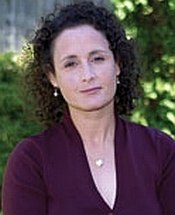
Here’s how fast class actions against Volkswagen are proliferating.
Last Tuesday, when the California firm Morris Polich & Purdy filed the initial motion to consolidate litigation by VW owners who claim they were tricked by the automaker’s “clean diesel” claims, its brief cited “at least 20 actions” in seven jurisdictions. A week later, according to a brief by Lieff Cabraser Heimann & Bernstein and Seeger Weiss, the number was up to 175 suits.
As of Wednesday, VW and Audi owners whose vehicles have been tainted by the emissions scandal have filed class actions in at least 40 federal jurisdictions in 30 different states.
Obviously, those cases will be consolidated by the Judicial Panel on Multidistrict Litigation, which is scheduled to hear about the VW class actions at its Dec. 3 meeting in New Orleans.
But where the consolidated litigation should take place is already being hotly debated by plaintiffs’ firms.
Six jurisdictions have been floated so far by different lawyers for car owners. (VW has not yet signaled whether it agrees the cases should be consolidated and, if so, where.) Three of the six suggestions have to be considered far-fetched. Birmingham, Alabama’s best claim on the litigation, for instance, is its proximity to VW facilities in Georgia and Tennessee, according to a brief from Heninger Garrison Davis.
Cleveland, Ohio? The judges there are very good at handling MDLs but don’t have very many of them, says Spangenberg Shibley & Liber, which happens to be based in Cleveland.
According to Robert Hilliard of Hilliard Munoz & Gonzales – one of the plaintiffs’ lawyers leading the litigation over GM’s faulty ignition switch – the VW cases should go to Corpus Christi, Texas because – well, because Hilliard thinks very highly of the trial judges in his home court.
The more compelling candidates for the VW MDL are Los Angeles; Newark, New Jersey; and Alexandria, Virginia, all of which have also been proposed in filings with the MDL panel.
New Jersey, which is backed by Lieff Cabraser and Seeger Weiss, is Volkswagen’s state of incorporation in the U.S. and is the home of the company’s U.S. engineering and environmental office as well as other VW corporate operations.
New Jersey is also easily accessible to air travelers from Germany, where Lieff and Seeger Weiss assert the supposed emissions-evading scheme was devised and executed.
The “rocket docket” of Eastern Virginia was proposed by Burns Charest, which can’t be accused of hometown chauvinism because it is based in Dallas.
Virginia is the headquarters for the U.S. operations of Volkswagen and Audi, making it “their nerve center and the center of their decision-making process,” the Burns firm said.
(Clearly, the plaintiffs will have to do some digging to figure out which continent was actually the site of VW’s fateful emissions-rigging decisions.) Burns Charest also points out that Alexandria is a mere 200 miles from Morgantown, West Virginia, where researchers from University of West Virginia first exposed VW’s manipulation of the cars’ emissions. (For however much that is worth.) VW sold more “clean diesel” cars in California than any other U.S. state, and more class actions by car owners have been filed there than anywhere else, according to a brief filed Wednesday at the JPML by Bernstein Litowitz Berger & Grossmann.
Federal judges in Los Angeles, in particular, have already handled sprawling products liability litigation against Kia and Hyundai, which were accused of misrepresenting their fuel efficiency, and against Toyota in the sudden acceleration litigation.
Moreover, according to Bernstein Litowitz and Morris Polich, which is also pushing for consolidation in Los Angeles, the California Air Resources Board helped expose the VW scandal. Its investigative records and important witnesses are already in the state, as is the largest VW testing and product development center outside of Germany.
The plaintiffs’ firm Cotchett Pitre & McCarthy makes some of the same California-centric arguments in its brand new brief but argues for consolidation in federal court in San Francisco rather than Los Angeles.
Lawyers in the VW case have until Oct. 20 to file briefs backing one of these courts or proposing a different jurisdiction to oversee the litigation. VW’s brief will be especially interesting.
This has the makings of a gigantic case.
Some of the consolidation motions assert that clean diesel cars are worthless because they can’t pass some state emissions tests and dealers won’t take them back. We are probably years from any judicial decision on that allegation – but VW had better be thinking now about which judge it wants to make that determination.








































